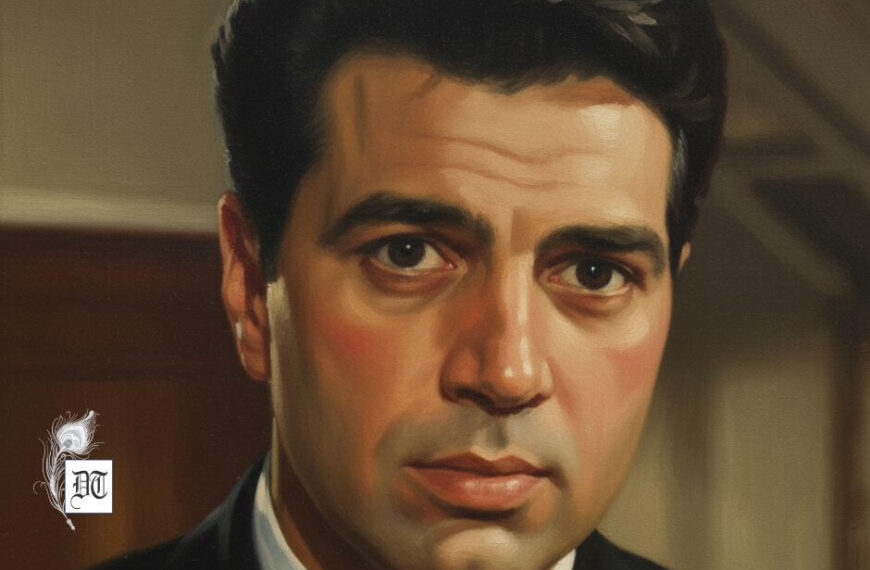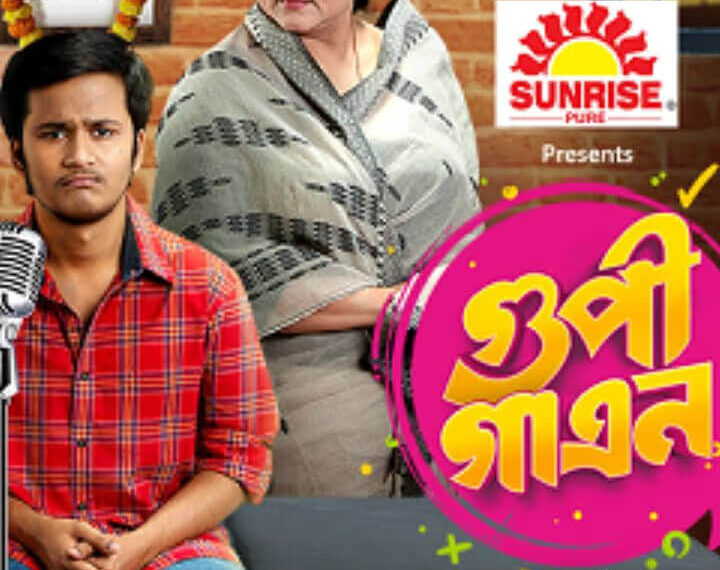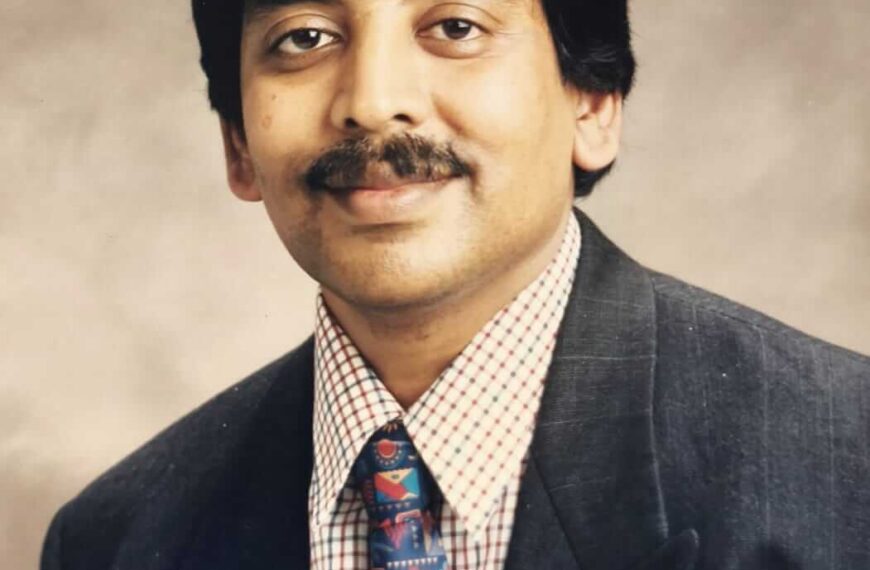Sukanya interviews Scott Sawitz, a writer/director from Chicago, in a candid interaction, exclusively for Different Truths.
Scott Sawitz is a writer/director from Chicago, IL. He is known for his ability to craft character studies of complex, flawed individuals within a genre framework. His feature film “Save State” is currently available on Tubi, Amazon, ReVeel, and iTunes, and will soon be available on Mosaic TV. Sukanya in a candid interview with him.
SBM: Scott, your films often explore the complexities of flawed characters within genre frameworks. What draws you to this style of storytelling?
SS: It’s where I start the writing process. People love great genre films because they have strong, likeable, and imperfect heroes & villains. For me that’s what makes a great action film what it could be; it all boils down to strong characters that make you vested in their journey and that’s where I like to start.
SMB: Can you share the inspirations behind your feature-film, “Save State” and what challenges you faced while bringing this project to fruition?
SS: I had a relationship end right before the COVID lockdowns in 2020… and spending all that time alone in my townhome made me think a lot. A co-worker and I were joking about the craziness of that year on a phone call once, giving me inspiration. My joke was that Covid, the “peaceful protests,” and everything about that year were probably the result of some guy trying to use a time machine and messing it all up. From there, I took the very real pain I was going through and started writing.
SMB: Your body of work includes both small comedies and violent thrillers. How do you navigate the creative process between these differing genres?
SS: I like to think the process begins at the same place, the lead character. Everything else is a matter of research and development as a creative.
SMB: As an optioned and produced writer/director, what key piece of advice would you give to aspiring filmmakers who want to excel in both writing and directing?
SS: Both have impossibly different skillsets, and you can’t master both at the same level. It’s why the best writers are usually not the best directors, and vice versa… look at the best directors currently working now. They almost always have writing partners or they’re grabbing their material from novel adaptations, etc.
My only advice would be to know your limits and your weaknesses so that you can find people around you that makes up for it. If you’re not a great writer but a great director, find a writer to partner up with to bring that aspect up. It’s like being on a sports team; not everyone is a great player at everything, but everyone has a role they do well when it comes to winning at the highest level. Lebron James may be the best player, but he can’t do everything, either, hence why he has guys around him.
SMB: Could you discuss the role of character studies in your films and how you develop these complex, flawed personalities to resonate with audiences?
SS: It begins on the page, of course, but a lot of it is being able to have that great actor to bring everything on the page onto the screen.
On “Save State,” I was blessed to have an amazing cast who read the words I’d written and developed everything else from there. Part of how I direct is having my actors be able to own that part of the creative process.
They aren’t there to read lines, they’re there to deliver dialogue… they also see things you don’t in the entire creative process, as well. You can write an amazing character on paper but it’s ultimately down to an actor to bring them to life… and a lot of that is allowing an actor to take that two-dimensional character and bring depth to it.
SMB: With your experience in the industry, how do you see the evolution of film distribution, especially with platforms like Tubi, Amazon, ReVeel, iTunes, and the upcoming Mosaic TV?
SS: The beautiful thing about the streaming atmosphere we’re in now is that it’s never been easier to get a film out into the public. It used to be so much harder for the indie world because you either had to win space in an aisle or have just enough luck to be discovered at a festival. It’s also hard because there’s never been so much content out there, too.
I think we are trying to find a way where we can be seen while also not actually starving as a starving artist is where evolution is going to have to go. I’ve seen so many amazing films with the same writers, directors, and actors are all people in my world because making money and gaining exposure are still difficult.
SMB: You have a background in writing various scripts—from thrillers like “Shattered” to comedies like “Sort of a Chicago Love Story.” How does your approach differ when writing across genres?
SS: A lot of it is making sure the character fits in the film they are. I’ve had characters I can feel in my mind but the script I start with them in it just isn’t working… the character is, but they aren’t. So that’s my first thing; the character needs to fit into this world and if they don’t, either the character needs to change or the script does.
Funny thing: “Shattered” started out as a comedy named “Won’t You Be My Victim” in my first draft based off a joke with a friend of mine. He had never seen Mr. Rogers, so we were describing him and John (my friend) thought he sounded a little creepy. So, we were making jokes about him as a serial killer and I thought a screwball comedy with a serial-killing Mr. Rogers type would be funny… it wasn’t working as a comedy but that character and world in a dark manner really hit hard.
SMB: Your scripts often contain intricate plots and detailed character arcs. What is your process for layering these elements into your screenplay?
SS: A lot of that is just the writing process; I spend more on my outline than I do writing the script because I want to make sure the overall story is flowing first before I type Fade in. Too many people just go “YOLO” and just write it… and they spend so much time fixing the overall story because they don’t have it down all the way.
When I go out to get notes from friends and fellow filmmakers, I don’t want them focusing on story elements that leave holes elsewhere, etc. I I want them to give me notes on the overall of what isn’t working, etc, and not anything that can be fixed by spending a reasonable amount of time on preparation.
It’s like building a knife. I watch “Forged in Fire” a lot, which is a competitive reality show about knife-making, and the guys who consistently win, do the same process of spending lots of time preparing to build. It’s an entire process and making sure things like your steel is clean before everything (to prevent cold-shuts and other issues in the forging process) are something the guys who win consistently do.
So that’s how my process begins. I have my lead character (and everyone else I need), an idea of who they are (which is developed further in my files before I write a line of dialogue), and a developed outline considering everything I want in that first draft.
From there, it’s refining, being amenable to ideas from other writers to make it better, and then consistently rewriting it based on good, actionable feedback.
SBM: You have been part of the filmmaking scene for several years. How have changes in the industry influenced your work and your approach to new projects?
SS: It’s tempered by what I’m willing to go for; too many people think their first big project needs to be the dream and won’t settle for anything less. It’s part of why I wrote “Save State” the way I did; it was a personal, small film but still a feature film. Right now, my next one is going to be bigger … but it won’t be $300 million tentpole, either, of course. Too many people refuse to settle for the fact that getting to direct the dream feature with the dream budget and dream cast is just a matter of the right introduction, etc, instead of building up to it.
SBM: Finally, what is the next project you are working on, and what can your audience expect from you in the near future?
SS: I’ve got three features I’m considering for the next one. Right now, it’s a matter of finding funding, and the right producer, before moving on. After “Save State” I was mentally exhausted; it was a personal film that took a lot out of me, emotionally, so finding the right time to be back on a set was key.
The funny thing was after the film was released is people wanting me to direct their script…. And it was always about time travel, too. It’s made me a little reticent to make a sequel to Save State. I’d love to bring back the cast, as they were all awesome and I’d love to have a bigger budget to do bigger things, but I also don’t want to just be the Save State guy too.
The ideal next one is a feature I’ve written called “The Last Day of Comics,” about the final day of a comic bookstore. It’s on my Script Revolution account (complete with a pitch deck), if anyone wants to give it a read.
Photo sourced by the interviewer.








 By
By
 By
By